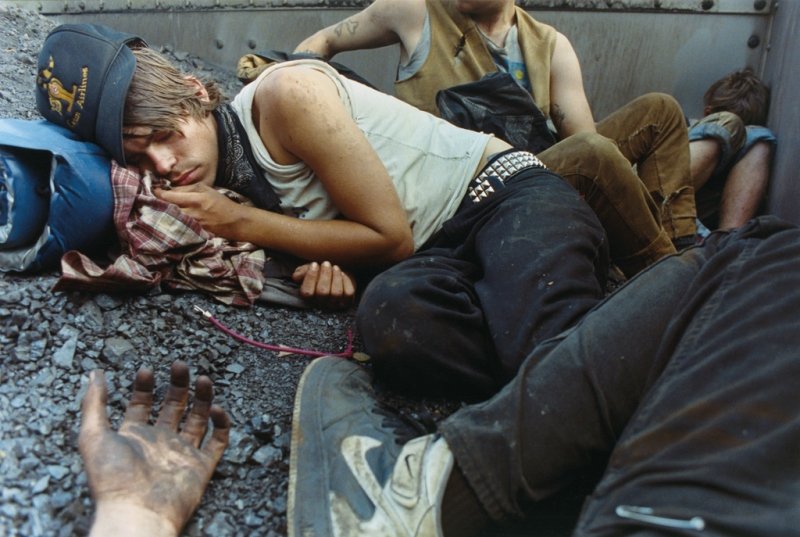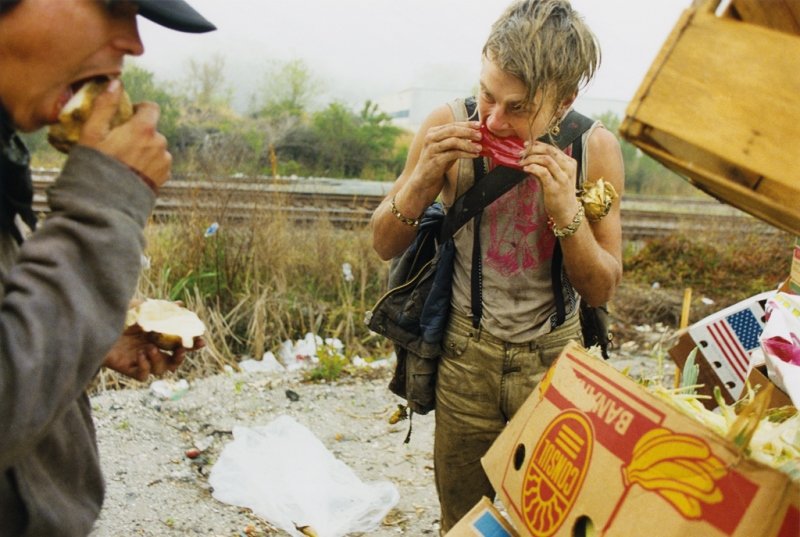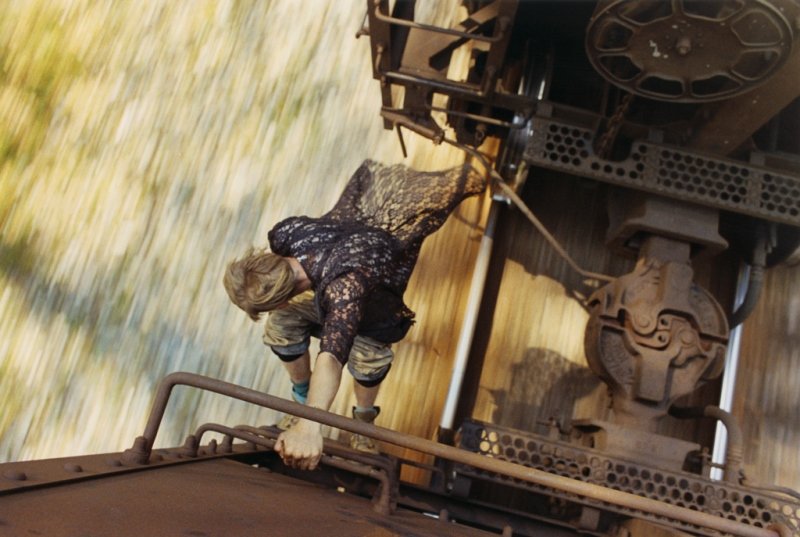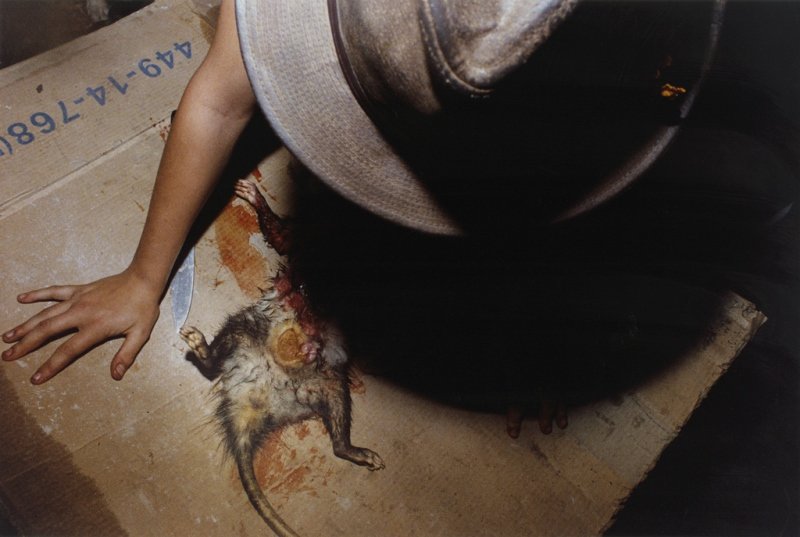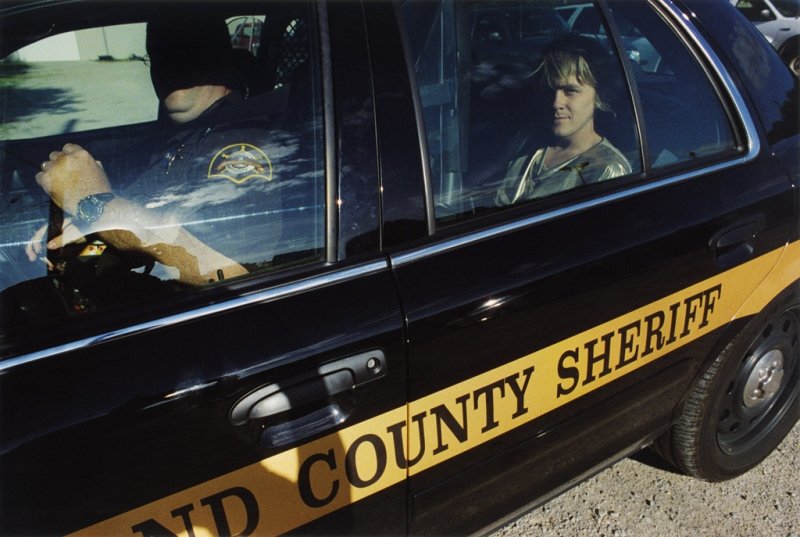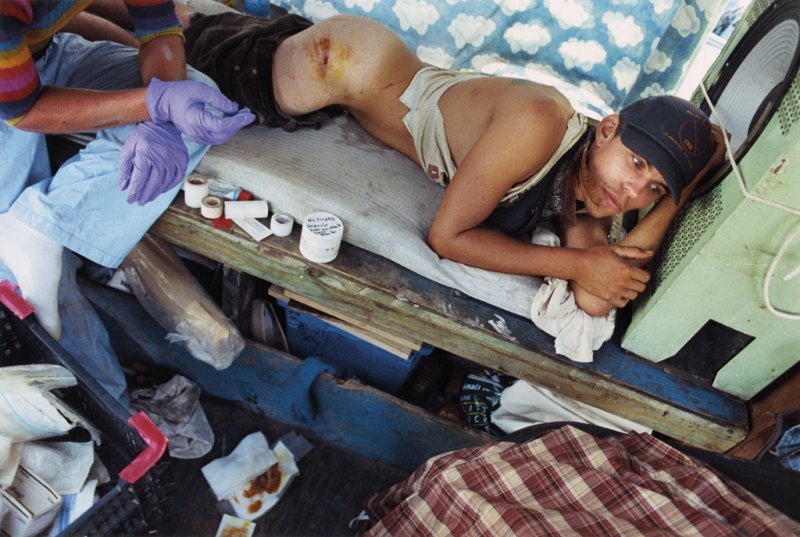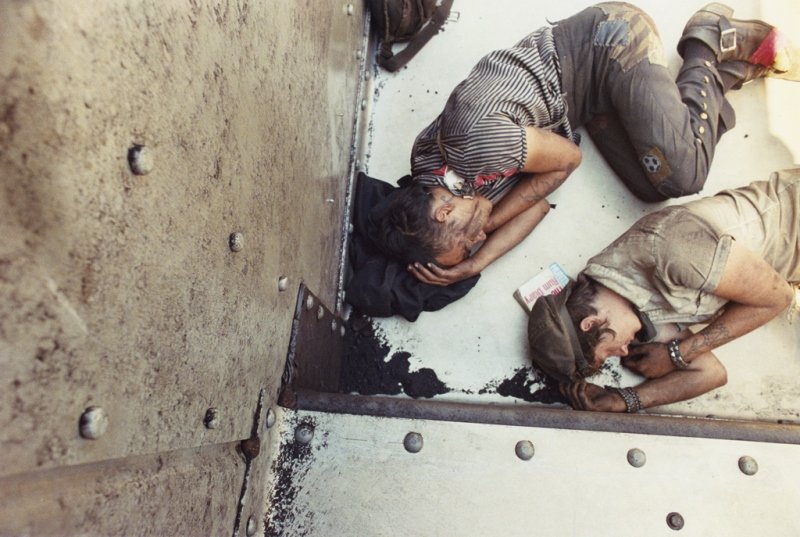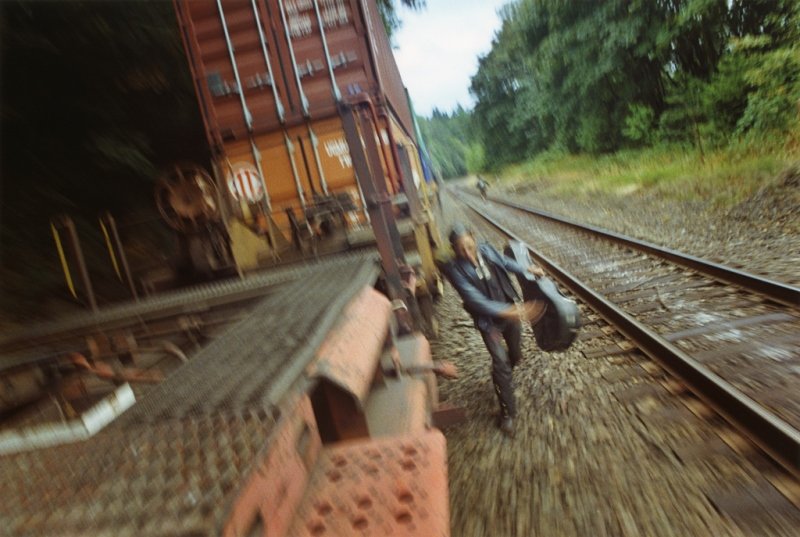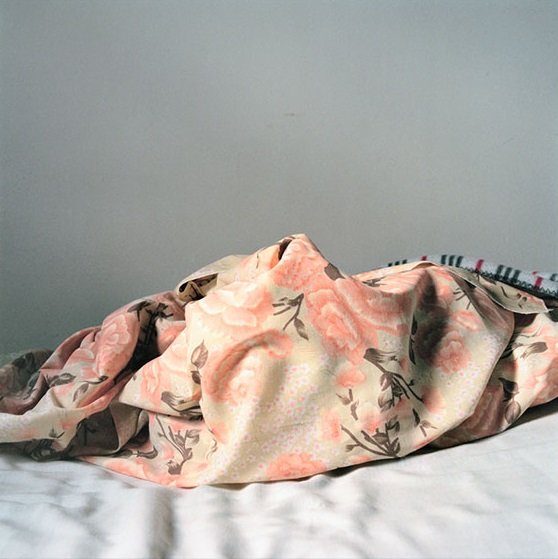U.S.A. –
With freight train jumping and hitch-hiking as his method, a camera as his tool and a desire to explore beyond the boundaries of his home town as his impetus, Mike Brodie has spent much of his adult life criss-crossing the veins of America’s long-haul passages. His unique photographic catalogue captures a rare angle of community and country that embodies elements of magnetic anti-establishment and punk rock idealism. It depicts an alternative lifestyle of transient yet soulful interactions, of wind-tossed hair and weather worn clothes, mingled with moments of clarity between the unknown. The result is that an existence housed in long, illegal escapades and unconventional voyages via freight and carriage, with scarce food and hygienic dissonance suddenly shines with an alluring, adventurous and seductively glamorous freedom: “So long as you like the outdoors life and you don’t mind getting dirty and not having a change of clothes for months”. His desire for spontaneity and freedom combined with a fervent locomotive obsession has seen Brodie ride magnanimously for years in a clandestine cosmos of movement.

© Mike Brodie
Brodie’s unorthodox journey began over 9 years ago when he hopped on his first train near his home in Pensacola, FL in 2004. From then on he became part of a tight knit and transient community of travellers and run-aways and was able to document his movements with a Polaroid SX-70 that he found on the back seat of a friend’s car. With few means of subsistence and no formal photographic training, Brodie exhibits a natural talent for depicting the intimate and cherished moments around him. From 2006-2009, Brodie switched to using 35mm film where he was able to capture a multiplicity of occasions spanning 50,000 miles and 46 states. “I know almost everyone I shoot,” Brodie says of his portraits, “three of the women in the book are ex-girlfriends and a couple of the guys… are best friends”

© Mike Brodie
According to Brodie “going off on an adventure across the country like Huck Finn is a very American thing to do,” so, bored with “bagging groceries” part-time in between school, and determined to follow his own words, he set off on a three-day journey to Jacksonville. This journey that would set the scene for a much larger adventure until he decided to settle in 2008. Brodie, like many of the others he encountered a long the way felt as though the transient lifestyle was a teenage right of passage. “A lot of the kids have gone back to their old lives… Some were running away, some were out for adventure. It’s like being homeless by choice, I guess, but living like that you learn a lot of American values like self-reliance, independence.”

© Mike Brodie
Through venturing across ever-changing landscapes, the artist who, due to his original choice of medium goes under the moniker ‘The Polaroid Kidd”, managed to construct an anecdotal, print narrative of a surreptitious life juxtaposed against the cautious and impervious traditional living of the American dream. It was his version of the American dream. However Brodie chooses not to connect with such vocational titles. “In my heart I do not feel like a photographer. I don’t know if I ever have.” Rather, his illustrative tableau that captures delicate pauses of rest, intimate tales of comradery, solitude, fragility, filthy-fellowship and lives forever foraging for the next opportune adventure has been spurred on by an insatiable lust for experiences and a rapacious desire to become acquainted with existence.
Perhaps the in depth intimacy projected by Brodie’s portraits comes from the close kinship he developed with the people involved. When asked “Who are the people in your photographs?”, Brodie responds with “Corey, Blake, Shannon, Henry, Patrick, Rocket, Soup, Lulu, Brandy, Vanessa, Savannah, Harrison, Alexis, Oliver, Lost, Trinity, etc.”. He often alludes to his ‘tight circle’ as family –“Even if the family lived 3,0000 miles away, you keep tabs on where they’re going and why. The difference is these families travel a lot.”

There is a story, detail or relationship behind every photo. “Me and my girlfriend got off a train in Maryland and hadn’t showered in five days so we got a Super 8 Motel and she washed her pants in the bathtub. That’s why the water was so dirty: train grease” . © Mike Brodie
Brodie was first recognised in 2008 when unbeknownst to him, his work was submitted and received the Baum Award for ‘Emerging American Photographer’. This lead to a growing awareness of his work; however, Brodie remained unbothered by growing expectations and, still unwilling to connect with the definitional pigeon-hole of being an ‘artist’, he changed route again. Instead of capitalizing on his impressive fame and online notoriety, Brodie chose to broaden his locomotive knowledge and recently graduated from the Nashville Auto-Diesel College (NADC). “Lately, I’ve been spending my days working on people’s cars, you get really close to people working on their cars, cars are so important to people and so many things happen in them or around or with them. I should be photographing it.”

© Mike Brodie
Now, 9 years down the road, Brodie’s highly anticipated second solo exhibition is coming to a close in time with the recent release of his first book. A Period of Juvenile Prosperity by M+B exhibits 30 new colour photographs and opened in conjunction with the publication of Brodie’s monograph bearing the same name, published by Twin Palms. The exhibition is Brodie’s first solo exhibition in 6 years. His permanent collections in the San Francisco Museum of Modern Art and the Berkeley Museum have been likened to that of artists Robert Frank and William Eggleston.
With fame and acclaim swelling around him, Brodie has retreated into obscurity yet continues his locomotive obsession as a mobile mechanic in his silver ’93 Dodge Ram truck. Perhaps, it is the ultimate parody that a man who declines to align himself with an artistic tag has now published a book about the subversive subculture of America. One thing is clear though – Brodie is extremely passionate about capturing the raw reality of his movements within an exquisitely unruly community.
 © Mike Brodie
© Mike Brodie
Photography feature -Written by Stephanie Cardy
A Period of Juvenile Prosperity courtesy Twin Palms Publishers




